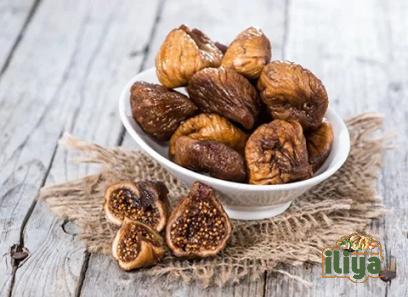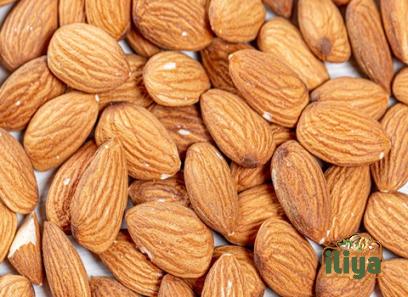Almonds are one of the most popular and nutritious nuts, widely enjoyed worldwide for their unique flavor and health benefits. Among the varieties available, Kashmiri almonds stand out for their distinct quality, taste, and size. Grown in the picturesque valleys of Kashmir, these almonds are appreciated for their rich flavor, delicate texture, and numerous health benefits. In this article, we will explore the various types of Kashmiri almonds and highlight their characteristics, uses, and significance in different culinary practices.
1. Native Kashmiri Almonds:
Native to the beautiful landscapes of Kashmir, native Kashmiri almonds are known for their exceptional quality. They are oval-shaped, medium-sized, and have a slightly wrinkled appearance. These almonds have a rich and nutty flavor with a crunchy yet tender texture, making them perfect for snacking and cooking. Native almonds are commonly used in Kashmiri cuisine, where they add flavor and texture to a variety of dishes, such as saffron-infused rice, biryanis, and desserts like phirni and kheer.
2. Mamra Almonds:
Mamra almonds, also known as Gurbandi almonds, are a premium variety of Kashmiri almonds. They are smaller in size compared to native almonds and have a darker skin tone. These almonds have a high oil content, which gives them a unique flavor profile. Mamra almonds are highly valued for their natural sweetness and soft texture. They are often consumed as a healthy snack or used in the preparation of delicacies like marzipan, almond milk, and mithai (Indian sweets). Additionally, the oil derived from Mamra almonds is highly prized in Ayurvedic practices and is used in various wellness products.
3. Badam Shirin:
Badam Shirin is a popular variety of sweet Kashmiri almonds that are commonly used in traditional Indian desserts. These almonds are usually soaked in water or milk to soften them, making them easier to blend or grind into a smooth paste. Badam Shirin is typically made from selected, high-quality almonds that are blanched, peeled, and ground to a fine powder. This powder is then used as a base ingredient to prepare kheer, halwa, and other sweet delicacies. Badam Shirin is known for its aromatic flavor and provides a rich, creamy texture to desserts.

4. Kashmiri Kagzi Almonds:
Kashmiri Kagzi almonds are renowned for their distinctive appearance, characterized by their paper-thin, fragile skin. These almonds have a unique texture and a slightly sweet taste. The delicate skin of Kagzi almonds enhances their flavor and is often appreciated by those looking for a rich and sensory experience. Kagzi almonds are widely used in Indian cuisine, especially in the preparation of almond burfis, laddoos, and other traditional sweets. Due to their fragile skin, Kagzi almonds are also popular as garnishing for desserts, adding a touch of elegance and visual appeal to the dish.
5. Organic Kashmiri Almonds:
Organic Kashmiri almonds are grown using natural farming practices that avoid the use of chemical fertilizers, pesticides, and other synthetic substances. These almonds are highly regarded for their superior quality, pure taste, and nutritional value. The organic cultivation methods help retain the natural flavors and essential nutrients of the almonds. These almonds are a popular choice for health-conscious individuals who prioritize organic and sustainable food options. They can be savored as a standalone snack or used in various culinary preparations, ranging from savory dishes to desserts.
Conclusion:
Kashmiri almonds are treasured for their distinct qualities, including their rich flavor, delicate texture, and numerous health benefits. From native almonds that form the backbone of Kashmiri cuisine to the premium Mamra almonds with their unique taste, each variety offers a unique culinary experience. Whether you prefer the mildly sweet Kagzi almonds or the smooth-textured Badam Shirin, there is a Kashmiri almond variety to suit every palate. Furthermore, the availability of organic options caters to the growing demand for sustainable and healthier food choices. Incorporating these flavorful almonds into your meals and snacks can enhance not only the taste but also the overall nutritional value of your diet.1. The Rising Demand for Kashmiri Almonds:
Kashmiri almonds have gained popularity not only for their exceptional taste but also for their numerous health benefits. The increasing awareness of the nutritional value and potential health advantages of almonds has contributed to the rising demand for Kashmiri almonds in both local and international markets. Almonds, including the various types found in Kashmir, are known to be rich in essential nutrients like healthy fats, protein, fiber, vitamin E, and minerals. These nutrients play a crucial role in promoting heart health, managing weight, maintaining healthy skin, and supporting brain function.
2. The Culinary Significance of Kashmiri Almonds:

Kashmiri cuisine is renowned for its aromatic flavors and use of locally sourced ingredients, and Kashmiri almonds are no exception. Almonds are an integral part of Kashmiri desserts, Kashmiri spice blends, and savory dishes like pulao and biryani. The distinct flavor and creamy texture of Kashmiri almonds lend a unique taste to these traditional dishes. Whether it’s the subtle sweetness of Badam Shirin in a rich kheer or the crunchy texture of native almonds in a savory rice preparation, these almonds elevate the flavors and add a touch of luxury to the cuisine.
3. Health Benefits of Kashmiri Almonds:
Kashmiri almonds offer an array of health benefits due to their nutrient-rich composition. Besides being a good source of healthy fats, protein, and fiber, almonds contain vitamin E, which acts as a powerful antioxidant, protecting the body against free radicals. The monounsaturated fats found in almonds have been associated with reducing bad cholesterol levels and promoting heart health. The magnesium content in almonds contributes to maintaining healthy blood pressure levels, while the fiber aids in digestion and promotes satiety. Additionally, almonds are known for their potential to support cognitive function and provide a good source of energy.
4. Mamra Almonds and Their Unique Qualities:
Mamra almonds, also referred to as Gurbandi almonds, are a special variety known for their unique characteristics. These almonds are smaller and darker in color compared to other Kashmiri almonds, and they have a soft texture and an intense, sweet flavor. One significant aspect of Mamra almonds is their high oil content, making them an excellent choice for extracting almond oil. The oil derived from Mamra almonds is highly sought after for its numerous health and beauty benefits in Ayurveda and skincare products.
5. Badam Shirin: The Preferred Choice for Sweet Delicacies:
Badam Shirin, a delightful variety of Kashmiri almonds, is widely used in Indian and Kashmiri desserts. These almonds are blanched, peeled, and ground into a fine powder, which serves as the base ingredient for a range of sweet treats. Badam Shirin adds a rich, creamy texture and an aromatic flavor to desserts like kheer, halwa, and phirni. The versatility of Badam Shirin makes it a go-to option for people looking to add an almond essence to their sweet culinary creations.
6. The Fragrance and Sensory Appeal of Kashmiri Kagzi Almonds:

Kashmiri Kagzi almonds are known for their unique appearance and fragility. With their paper-thin skin, Kagzi almonds reveal a delicate texture and slightly sweet taste when consumed. The thin skin enhances the almond’s overall sensory experience, and their use goes beyond just being a cooking ingredient. Kagzi almonds are often used as a garnish for desserts, adding visual appeal and a subtle almond flavor to the dish. Their fragrant aroma makes them an excellent choice for indulging in almond-based sweets, such as burfis and laddoos.
7. Organic Kashmiri Almonds: Meeting the Demands of Health-conscious Consumers:
In recent years, there has been a growing interest in organic and sustainably produced food items, including almonds. Organic Kashmiri almonds are cultivated using natural farming practices, free from synthetic pesticides, fertilizers, and other chemical inputs. These almonds retain their natural flavors, nutritional value, and are considered healthier alternatives to conventionally grown almonds. Organic Kashmiri almonds cater to the demands of health-conscious consumers who prioritize organic and sustainable food choices, offering a guilt-free option for almond enthusiasts.
8. Market Demand and Availability:
The demand for Kashmiri almonds has witnessed a significant surge in recent years, both in domestic and international markets. The unique qualities, rich flavors, and nutritional benefits of Kashmiri almonds have caught the attention of almond lovers and culinary enthusiasts worldwide. As a result, the availability of Kashmiri almonds has expanded beyond the local marketplace, making them accessible to a larger audience through online retailers and specialized gourmet stores. This wider availability has not only contributed to the growth of the almond industry in Kashmir but has also allowed consumers to explore and choose from different types and varieties of Kashmiri almonds.
9. Value-added Products and Almond Derivatives:
The popularity of Kashmiri almonds has also spurred the development of value-added products and almond derivatives. Almond milk, almond butter, almond flour, and almond oil are just a few examples of the diverse range of products that have capitalized on the unique qualities of Kashmiri almonds. These products offer consumers alternatives and variety while enjoying the nutritional benefits and flavors of almonds. The versatility of Kashmiri almonds allows them to be incorporated into various food and beverage items, catering to the preferences and dietary needs of a wide consumer base.
10. Establishing Quality Standards and Certifications:

With the increasing demand for Kashmiri almonds, it becomes essential to establish quality standards and certifications that ensure the authenticity and superior quality of the product. Recognizing the significance of quality assurance, various regional and international certification bodies have developed standards to regulate almond production and processing. These certifications provide consumers with the assurance that the almonds they purchase meet certain quality criteria, enabling them to make informed choices and further strengthening the reputation of Kashmiri almonds in the global market.
Conclusion:
The world of almonds offers a wide spectrum of flavors, textures, and culinary possibilities, and Kashmiri almonds showcase their unique qualities in various ways. From the native almonds that form the backbone of Kashmiri cuisine to the premium Mamra almonds sought after for their oil, each type of Kashmiri almond has its specialty and versatility. Whether consumed as a standalone snack, incorporated into savory and sweet dishes, or transformed into value-added products, Kashmiri almonds continue to captivate taste buds and provide a range of health benefits. As the demand for Kashmiri almonds continues to soar, it is essential to establish quality standards and certifications to maintain the authenticity and superior quality of these prized almonds.










